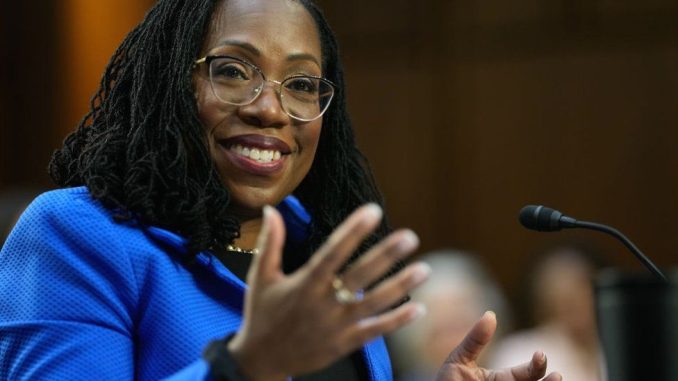
By Priscilla Mensah
With the Senate confirming Ketanji Brown Jackson this past Thursday as the first African American woman to serve as Supreme Court Justice, this is an appropriate moment for me to reflect on lessons that I personally have learned from her, which you can too.
I am fully aware that the framing, “lessons I have learned from her” may sound misleading at first, almost suggesting that Brown Jackson was a mentor to me, which she most certainly was not. In fact, perhaps unsurprisingly, I have never met Ketanji Brown Jackson.
Nevertheless, when watching portions of her confirmation hearings – which she had to endure in order for her to be confirmed as a judicial appointment to the highest court of the land – I learned a great deal that I think is worth sharing.
As one senator appropriately remarked during Ketanji Brown Jackson’s lengthy hearing, her confirmation proceedings were effectively a job interview. Though, in all honesty, I just turned on the hearings out of pure curiosity coupled with an innate excitement for its grander implications, I ended up learning some important things about the art of interviewing in the process.
Perhaps naively, I had always assumed that when interviewing, as the interviewee, you want to speak at a moderate to rapid pace. It was my understanding that responding to interview questions in a thoughtful, slightly slower way was not acceptable. To do so would mean that you may be answering dishonestly or fabricating certain details of your resume. Besides, if your resume is accurate, you should be able to regurgitate any and all facts in a somewhat swift fashion, so I thought.
It wasn’t until I saw Ketanji Brown Jackson often taking her time, thoughtfully answering questions asked of her by the US senators, that I saw the possibility of doing the same. The way that Brown Jackson often paused to both reflect and think carefully before speaking was something that I definitely took notice of.
Most importantly, Brown Jackson appeared to be truthfully answering her questions. It didn’t take long for me then to connect the dots and conclude that if Brown Jackson can be contemplative, not necessarily speedily or even readily answering questions during such an important, high profile job interview, then I certainly can too.
For me, as someone who is often nervous during interviews of any kind, I saw the advantages of emulating Brown Jackson’s interview style.
Being in a state of nervousness can also cause one to forget specific details of your work history. Giving yourself the space and grace to thoroughly think about your answers can likely yield meaningful benefits like answering questions more completely.
It is important to note, however, that I am no job interview expert. As such, I have considered the possibility that Brown Jackson’s interview style was the exception to the rule. It may be the case then, that when the average person interviews, they are expected to answer in a less measured, less leisurely way.
For this reason, it is still good practice to check with those more versed than me on interviewing (such as those helpful administrators in the Magner Center here at Brooklyn College) in order to know, with some confidence, how you are expected to conduct yourself during professional interviews.
At the very least, the interviewing style that Brown Jackson embraced during her Senate confirmation hearings provides for excellent food for thought. However one chews on it, I can think of few instances where being thoughtful about your word choice is ever bad practice.
